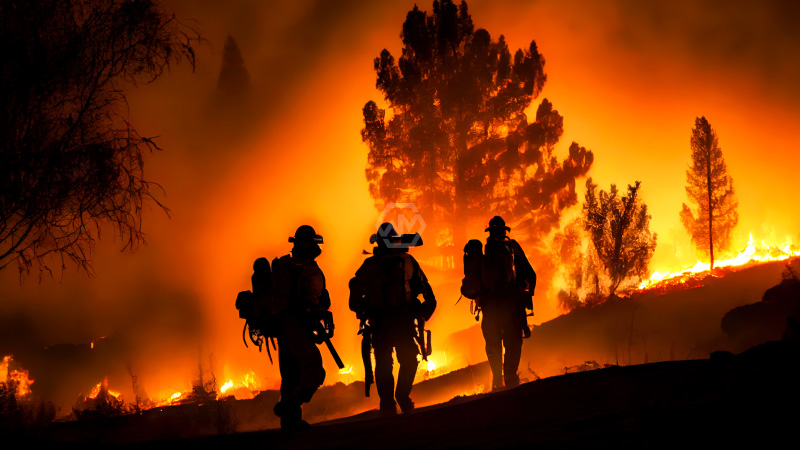A Canadian fireman has kicked the bucket battling a rapidly spreading fire in the western region of English Columbia, a nearby association said, as the nation keeps on wrestling with record blasts.
In a concise proclamation from the get-go Friday, the BC Broad Representatives Association (BCGEU) said the fireman – who was not recognized by name – kicked the bucket combatting a fierce blaze beyond Revelstoke, a town around 560km (347 miles) upper east of Vancouver, on Thursday.
Canadian Firefighter was Dead
Canada has confronted a record light to the 2023 fire season, with huge fierce blazes driving thousands to clear their homes in a few pieces of the nation and sending thick crests of smoke to the US and Europe.
English Columbia as of late arranged new departures because of the blasts and mentioned the assistance of 1,000 additional worldwide firemen. Around 2,000 firemen are fighting more than 350 flames across the region.
There are as of now three fierce blazes consuming inside 48km (30 miles) of Revelstoke, and two are thought of as wild, Canadian public telecaster CBC detailed.
- With 22.2 million sections of land (9,000,000 hectares) currently disintegrated.
- Multiple times the normal for the last ten years.
- The yearly record set in 1989 has been outperformed.
- More than 900 flames are at present consuming the nation, including 570 considered wild.
State leader Justin Trudeau communicated sympathies to the BC firemen’s friends and family and partners on Friday.
Last month, Canada’s priest of public wellbeing, Bill Blair, said the estimate for the late spring months showed the potential for “higher-than-ordinary fire movement” in the country.
A few regions – including BC, Alberta, and the Northwest Domains in the west, Ontario, Quebec, Nova Scotia, and New Brunswick in the east – have fought rapidly spreading fires throughout recent weeks.
Specialists have highlighted environmental change as deteriorating the size and extent of fierce blazes in Canada and all over the planet, as high temperatures and different variables lead to prior and more disastrous fire seasons.



